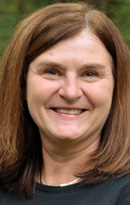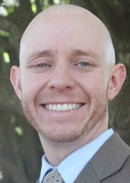WAKE FOREST, N.C. (BNG)—No doubt, there’s plenty to be afraid of these days—ISIS, a nuclear Iran, the divisive gay marriage debate, the rise of secularism and the declining American church. It’s enough to paralyze with fear anyone who ventures onto Facebook or cable news.
But experts with a variety of experience dealing with fear and its many forms—anxiety, angst, worry, stress—insist world, Christian and Baptist history prove faith trumps terror.
 Bill LeonardThe first step is to put everything—whether it’s beheadings, Ebola outbreaks or nasty U.S. politics—into perspective.
Bill LeonardThe first step is to put everything—whether it’s beheadings, Ebola outbreaks or nasty U.S. politics—into perspective.
Violence the norm
“Christians have faced danger and fear from the beginning, and you can start with the crucifixion,” said Bill Leonard, professor of church history and Baptist studies at Wake Forest University School of Divinity.
Sometimes they acquitted themselves well, and sometimes they didn’t, he said. Again, the crucifixion proves the point.
“All the disciples ran away, except the women stayed,” Leonard said.
From the standpoint of violence, it could be argued that it was downhill from there—at least for the era of the martyrs.
“Tertullian said the blood of the martyrs is the seed of the church,” he said. “Which means, in almost every era of Christian history there has been some sort of violence against Christians—sometimes by other Christians.”
Sign up for our weekly edition and get all our headlines in your inbox on Thursdays
Not only has the world always been a scary place; it’s also presented a plethora of reasons to be afraid, Leonard said.
Instead of plane-flying terrorists, people in earlier ages faced very short life spans, thanks to rampant invasions, epidemics and lack of medical care.
Even places in the world today where some of those threats still exist, they are not a threat to mass survival as they once were, Leonard said.
“Take Ebola as an example,” he said. “Even in the worst situations, Ebola was not as devastating as, say, the black plague was in medieval times.”
‘Uncontrollable fears’
But the way Christians weathered all those threats can be useful to people today cowering from the onslaught of negative political campaigning, news of beheadings and police shootings and concerns about divorce and religious freedom.
The first Baptists sought refuge in the Jesus story and its promise of strength for life in this world and the next, Leonard said. That was born out in their confessions of faith and in their hymnody.
“And they found it in Christian community,” Leonard said. “The early Baptists had a sense of the congregation of believers as a resource of strength and affirmation.”
All of these approaches worked for them “particularly when disease and warfare and the forces of nature seemed uncontrollable,” he said.
‘It’s in God’s hands’
Missionaries in the field and pastors in the pulpit often help lay people confront such fears while themselves grappling with the weight and stress of ministry.
Sue Smith sure does.
 Sue SmithSmith and her husband, Greg, are Cooperative Baptist Fellowship field personnel who work with immigrants in the Latino-Hispanic communities of Northern Virginia, primarily through their nonprofit organization called LUCHA Ministries.
Sue SmithSmith and her husband, Greg, are Cooperative Baptist Fellowship field personnel who work with immigrants in the Latino-Hispanic communities of Northern Virginia, primarily through their nonprofit organization called LUCHA Ministries.
Smith said she loses a lot of sleep sometimes worrying about clients—who are more like friends to her—facing challenges such as homelessness, hunger and deportation.
But she has a more global concern tied to the ongoing decline of the church, which can spell a downward trend for funding of ministries and missions.
“I fear churches are going to do their own thing and forget about us,” she said. “That’s a fear for a lot of us out there on the front lines of social ministry.”
Action is the remedy of such fears, she said.
“I keep doing what I do as best as I can and try to be effective to the point that no one is going to forget about us,” Smith said. “You hunker down and just do your job and not worry.”
That’s also how she handles late-night fears about many of her troubled clients. She networks with churches and other agencies to muster more resources. After that, there isn’t much more she can do.
“I have to step back and realize it’s not all in my hands,” Smith said. “It’s in God’s hands.”
Prayer vs. fear
Leading a congregation carries with it a host of similar concerns, said Brandon Hudson, pastor at Crosscreek Baptist Church in Pelham, Ala.
One of Hudson’s chief concerns is the safety of his parishioners, both when they are in the building and out living their lives.
 Brandon Hudson“I am concerned with keeping people safe and with how we handle aggressors,” he said. The tension is between how protective to be while also maintaining a nonviolent stance.
Brandon Hudson“I am concerned with keeping people safe and with how we handle aggressors,” he said. The tension is between how protective to be while also maintaining a nonviolent stance.
“Fear gives us easy space in our lizard brain to demonize and stereotype people, and to perpetuate those stereotypes,” he said.
“I think it is wise to keep the actual physical building, and the people within it, safe without keeping outsiders away.”
Hudson communicates these concerns with other church leaders as a way of handling his stress over such issues. Communicating with God also helps.
“Prayer … helps me feel more secure in the care of God, and when I’m feeling secure in that, it’s harder to be anxious,” he said.
















We seek to connect God’s story and God’s people around the world. To learn more about God’s story, click here.
Send comments and feedback to Eric Black, our editor. For comments to be published, please specify “letter to the editor.” Maximum length for publication is 300 words.